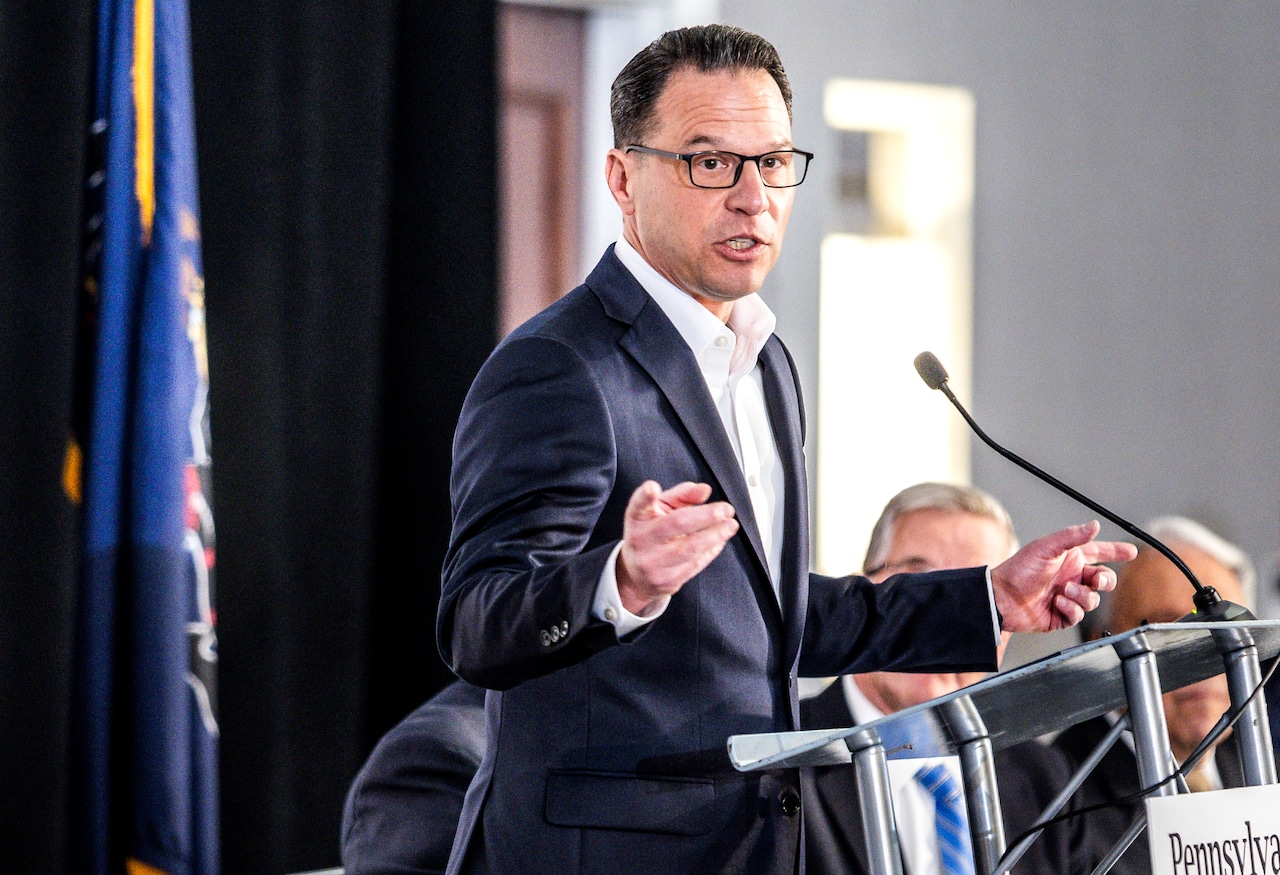Gov. Josh Shapiro is rolling out a new hotline and reporting system for consumer financial problems, which the administration says will help backfill some of the functions abandoned by the federal government as President Donald Trump seeks to shutter the Consumer Financial Protection Bureau (CFPB).
Shapiro and officials from his administration launched the new phone number and website Thursday, highlighting ongoing efforts to combat malfeasance by banks, credit card companies, mortgage lenders, and others who may be ripping off consumers.
“You tell us what the problem is, and we’ll get on it right away,” Shapiro said, adding that “we want there to be no wrong door” for Pennsylvanians to report financial scams or wrongdoing.
None of the work that state financial regulators are doing on the back end is new. The state Department of Banking and Securities and the Pennsylvania Insurance Department (PID) are enforcing the same consumer protection laws as they always have.
The point, Shapiro stressed, is to give consumers better access to investigators at a time when the federal government has effectively ended its consumer finance oversight role. In February, Trump and Elon Musk — the billionaire campaign donor at the helm of the president’s efforts to slash the federal workforce — announced plans to cut the CFPB by 90%, and ordered the agency to stop all enforcement.
“Despite the fact that Washington is walking away from this responsibility, my administration will continue to stand up,” Shapiro said, and the banking and insurance departments “have dedicated the personnel in their offices to making this outstanding effort.”
Created in 2010 as part of the fallout from the 2008 recession and Wall Street collapse, the CFPB has led a long list of investigations into banks that charge excessive overdraft fees, credit reporting companies that refuse to fix errors, and similar matters.
On Thursday, the Shapiro administration highlighted a number of parallel efforts made using Pennsylvania’s own consumer protection laws, which were described as relatively stringent.
The state’s usury law caps many small loans at 6% interest, paving the way for state banking regulators who “effectively eradicated” predatory payday lenders that otherwise charge triple-digit rates, said state Banking and Securities Secretary Wendy Spicher.
Her department also recently returned $300,000 to consumers who had bought money orders from a company that didn’t maintain the capital to pay them out, Spicher said, among many other enforcement actions in the works.
The state insurance department also does similar regulation, most of it stemming from complaint line tips — of which the department received 17,000 last year, according to state Insurance Commissioner Michael Humphreys.
Recent examples include a $26,000 case where coverage for truck repairs was wrongly denied, and an investigation that helped a person get $500,000 in death benefits that an insurer had wrongfully delayed.
“Not often do you hear someone say they want more complaints, but at PID we really do,” Humphreys said. “it helps us understand what’s happening in our marketplaces.”
It remains to be seen exactly what the fallout from the shuttering of the CFPB will be, although it could prove difficult for the state in a number of ways.
Firstly, while small by federal standards, the CFPB was a more expansive organization than any state-level agency that might find itself shouldering the work that the federal government has abandoned.
“I believe we have the capacity right now, though the secretary and the commissioner are going to let us know, as time goes on here with the CFPB no longer really performing that function, whether they need additional assistance,” Shapiro said when asked if he felt the state could sufficiently backfill the CFPB’s job.
“I think this is a pretty bipartisan thing. I’m sure lawmakers would step up to support that, if needed,” Shapiro continued, but there isn’t any extra budget support on the table right now.
Secondly, the U.S. Constitution grants the federal government sole power to regulate commerce between states, making it more challenging for states to pursue bad actors who are taking money across state lines.
Asked about this challenge, Shapiro cited a redlining case he pursued when he was state attorney general, in which other states began to contact him about similar allegations of discrimination involving the same lender.
“Where we had multiple states involved, we would lean on the expertise of the CFPB and sometimes lean on the laws the CFPB operated under, to share information, share documents, share things that were gathered in a way that is sometimes more challenging for states unless they enter into certain legal agreements,” Shapiro said.
“It is not impossible to do this work without the CFPB,” the governor continued. “It was easier to do it with them, particularly when the fraud crossed state lines. But we’ll figure out a way to do it.”







